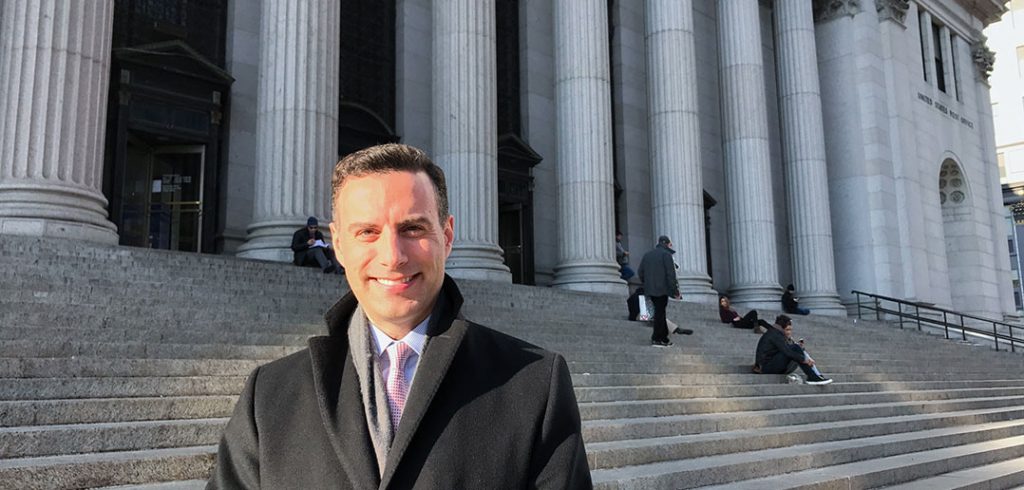Nick Mitrakis, GABELLI ’99, may have a resume full of impressive titles, but he also knows firsthand the frustrations that come with losing a job and looking for a new one. It’s that experience that inspired him to create Project: Job Search.
“I was out of a job twice, and so I experienced what it’s like to be in transition as a job seeker. One of them was in 2008, which was a very scary time,” Mitrakis says, remembering the Great Recession. “I know how frustrating some of the job search services can be. So the second time I was out of a job, in 2015, I decided to do something about it.”
Born in Germany to Greek parents, Mitrakis came to the United States for college. As a freshman at Fordham, he went from company to company asking for an unpaid internship until he got one. “And over time, they started paying me, first in lunches,” Mitrakis says.
His persistence paid off. After graduation, he landed a full-time job with Siemens in New York City. Over the years, he also worked in Dallas and London. Now he’s back in New York, where he is the corporate controller for the U.S. and Latin America at WSP | Parsons Brinckerhoff, an engineering consulting firm. But it’s the times in between that inspired Project: Job Search.
In Mitrakis’ experience “most places help you with your resume and then help you with interviewing,” he says. “But what happens in between?”
The program is aimed at career professionals, and is informed not only by Mitrakis’ experiences as a job seeker, an executive, and a recruiter, but also by interviews he conducted with HR professionals and others.
Michael Elliot was six months into his job search and feeling frustrated when he started Project: Job Search. Two months later, he accepted a position he loves. “The recommendations are very practical and action-oriented, and provided me with the real tools and additional confidence I needed to close the deal,” Elliot says.
The 10 short video chapters lead participants through the entire job search process, from building your job search tool kit to signing the final contract. Matching worksheets customize the topics to each individual, and users can go through the program at their own speed and even skip around.
These videos offer more than advice on typical job search topics, such as resumes and cover letters. Project: Job Search also has chapters on target companies and inside contacts, negotiating and probation periods, and unposted jobs.
According to Mitrakis, several recent studies suggest that a full 80 percent of jobs are unposted. “The higher you go in an organization, the more likely it is that you will land your job through networking versus a job board. So how do you get to the unposted jobs?”
Mitrakis is coming to campus to answer questions like these on January 4, 2017, but the program is already available free for Fordham alumni. He sees his program as a complement to Fordham’s other career offerings.
He hopes to expand Project: Job Search to include new chapters on topics like emotional well-being and managing your money during a job search. Eventually, Mitrakis would like to create a college version for students looking for internships or their first jobs, as well as an international version for other markets in other languages.
Though the basic 10-chapter program is complete, Mitrakis believes Project: Job Search should always “be a work in progress, always improving, always enhancing,” to stay relevant and help more people. “It feels great that I took my experiences and turned them into something useful that people can use. Hopefully it will help them during a difficult part of their life.”

